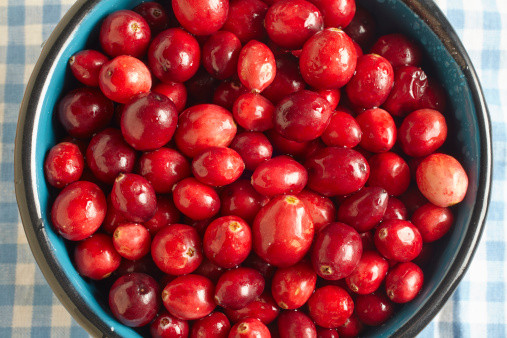Myth busted? Cranberries don't help treat cystitis
Older women are particularly at risk of UTIs but cranberries do not help them in any way.

Cranberries do not bring any benefit to women with urinary tract infections (UTIs), such as cystitis, scientists have found. The number of infections they develop over a year does not decrease when they consume the fruits.
It is a common myth that cranberries and their juice could help prevent recurrent UTIs in women and alleviate the uncomfortable symptoms of the infection. Over the years, many studies have been conducted to test this hypothesis, and they have come up with conflicting results.
The evidence was particularly limited for an age group that is especially at risk of developing UTIs – older women in nursing homes. It is in fact the most common type of infection diagnosed among the elderly.
In this study, published in JAMA, scientists have studied the efficacy of cranberries to treat UTIs in this population.
Cranberry capsules
A total of 185 female participants was recruited in different nursing homes. Their average age was 86 years. Some displayed traces bacteriuria and in some cases, pyuria in their urine. These are bacteria and white blood and their presence in urine samples constitute a sign of UTI.

The women were randomly assigned to take either two cranberry capsules containing 36 mg proanthocyanidin - the active ingredient in the fruit - or to placebo capsules. These were administered once a day over the course of the year-long study.
147 participants ended up completing the study and among them, the researchers from Yale School of Medicine found no evidence that taking the cranberry capsules brought significant relief to those who displayed signs of UTI.
There was no significant difference in the presence of bacteriuria with pyuria between the treatment group and the control group. Taking capsules didn't significantly affect the number of UTI episodes over the year – these women suffered 10 episodes while controls suffered 12 episodes. Finally, the rate of deaths, the number of hospitalisations, and the use of antibiotics or antimicrobial didn't vary much between both groups of women.
"This trial did not show a benefit of cranberry capsules in terms of a lower presence of bacteriuria plus pyuria among older women living in nursing homes," the study's authors point out. They suggest that cranberry capsules do not do any harm but they don't appear to have real benefits either in older women.
What are UTIs ?
Urinary tract infections occur frequently, particularly in women. They can affect the bladder, the kidneys and the tubes connected to them.
One of the most common is cystitis, characterised by bladder inflammation. Along with the infection of the urethra, it belongs to the group of the 'lower UTIs'. Symptoms include a pressing need to urinate more often as usual, pain or discomfort while urinating, pain in the lower tummy, presence of blood or cloudy urine, aches and tiredness.
Upper UTIs in the kidneys or ureters are more a cause for concern as they can cause the above symptoms as well as fever, confusion, pains in the side and back, shivering. If left untreated they can become serious as the infection can reach the bloodstream.
UTIs are usually treated with a course of antibiotics, while painkillers can also be given. It is crucial for patients to drink a lot.
© Copyright IBTimes 2025. All rights reserved.






















